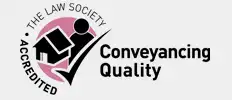Leasehold ownership of property in England and Wales is a form of landholding where the owner holds rights over a piece of real estate for an agreed upon period. The holder of the lease, known as a lessee, will usually pay rent to the landlord, known as lessor, during that period and have exclusive possession of the leased property. Other rights may also be granted or restricted by the terms of the lease agreement. After the expiry date stipulated in the contract, all ownership rights revert back to the lessor unless further agreements are made between both parties. Leasehold owners often benefit from subsidised services such as landscaping and maintenance provided by landlords on shared communal property like gardens and driveways. However, they do not have the same rights as freehold owners and may be subject to restrictions on alterations, sub-letting or even sale of the property. Leaseholders also typically pay a ground rent to the landlord which is an annual payment for continued use of the property. Overall, leasehold ownership of property in the UK provides tenants with rights and privileges over a given period while still allowing landlords to maintain legal control over their land.
 Wills from £204
Wills from £204
 Probate
Probate
 Motoring Offences
Motoring Offences
 Criminal Defence
Criminal Defence











